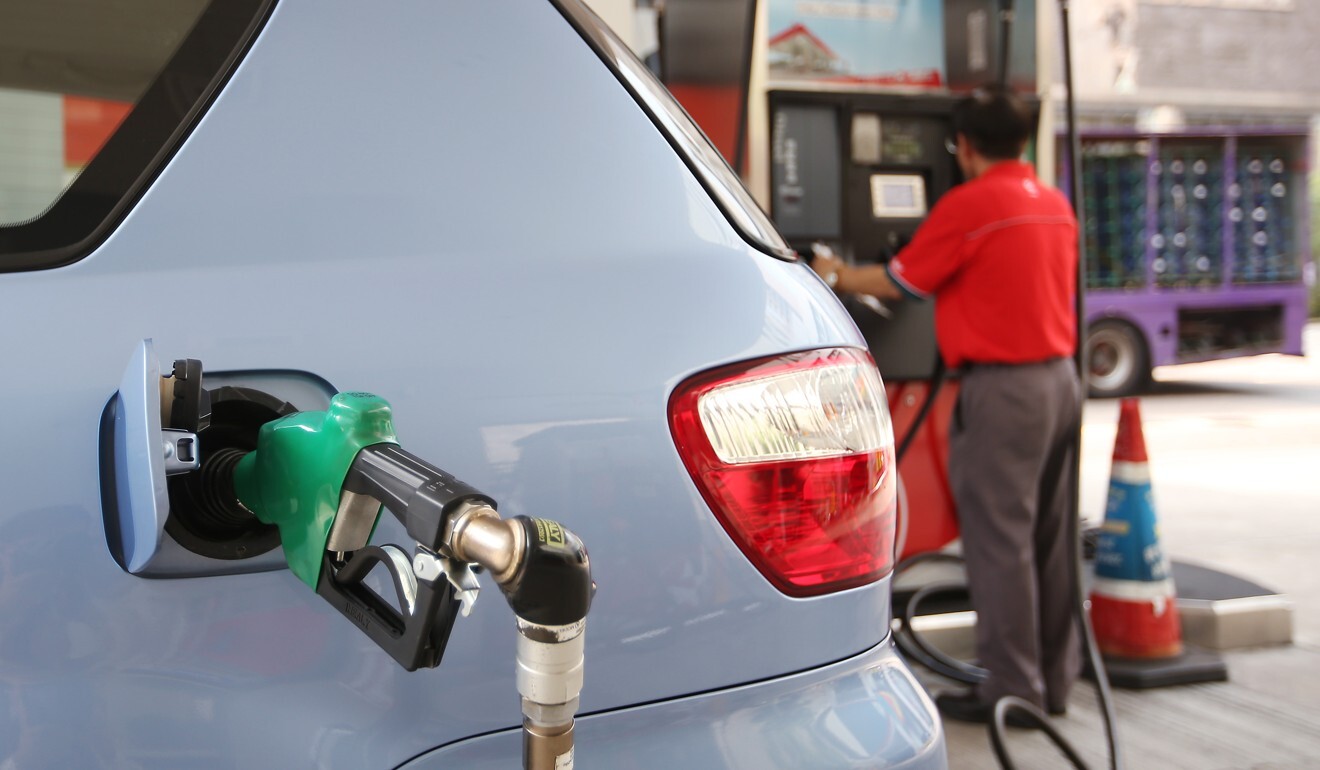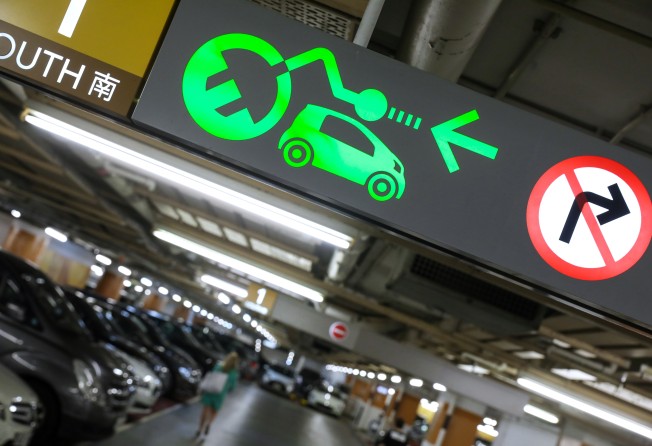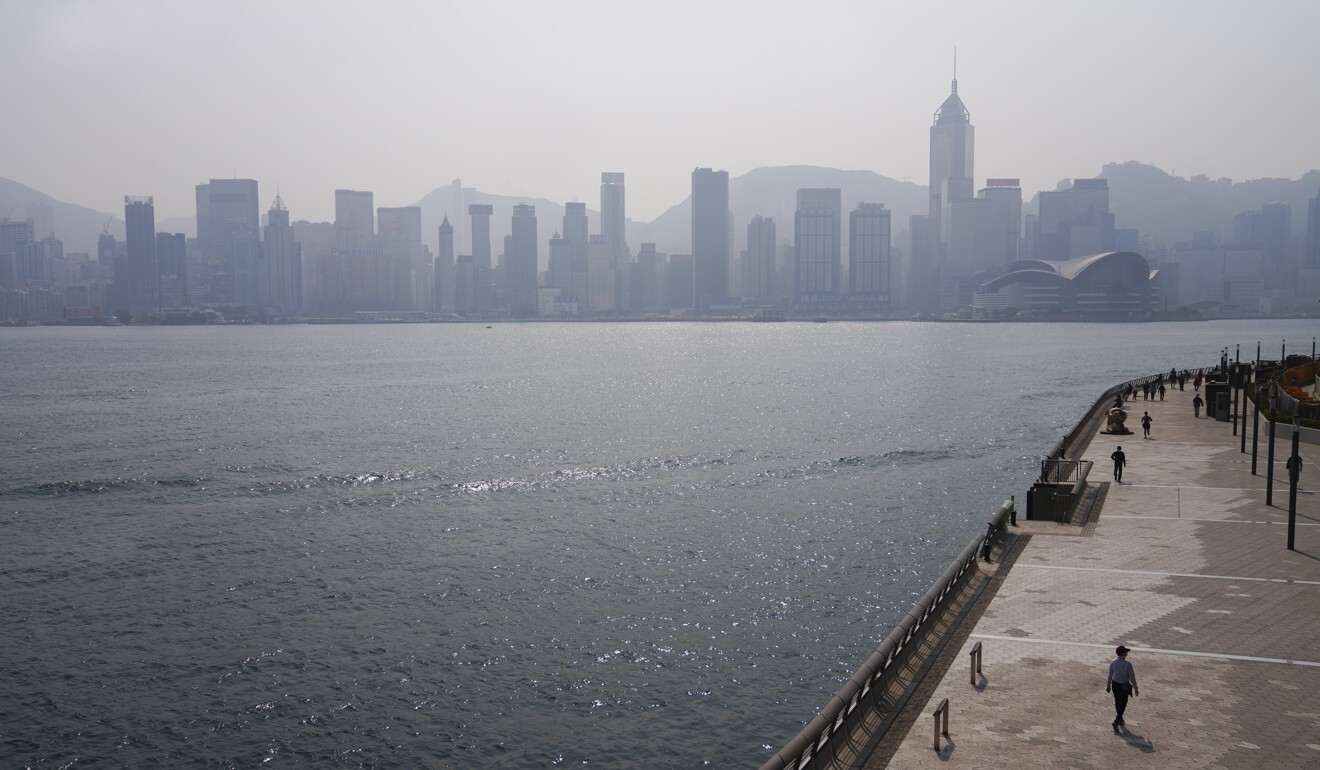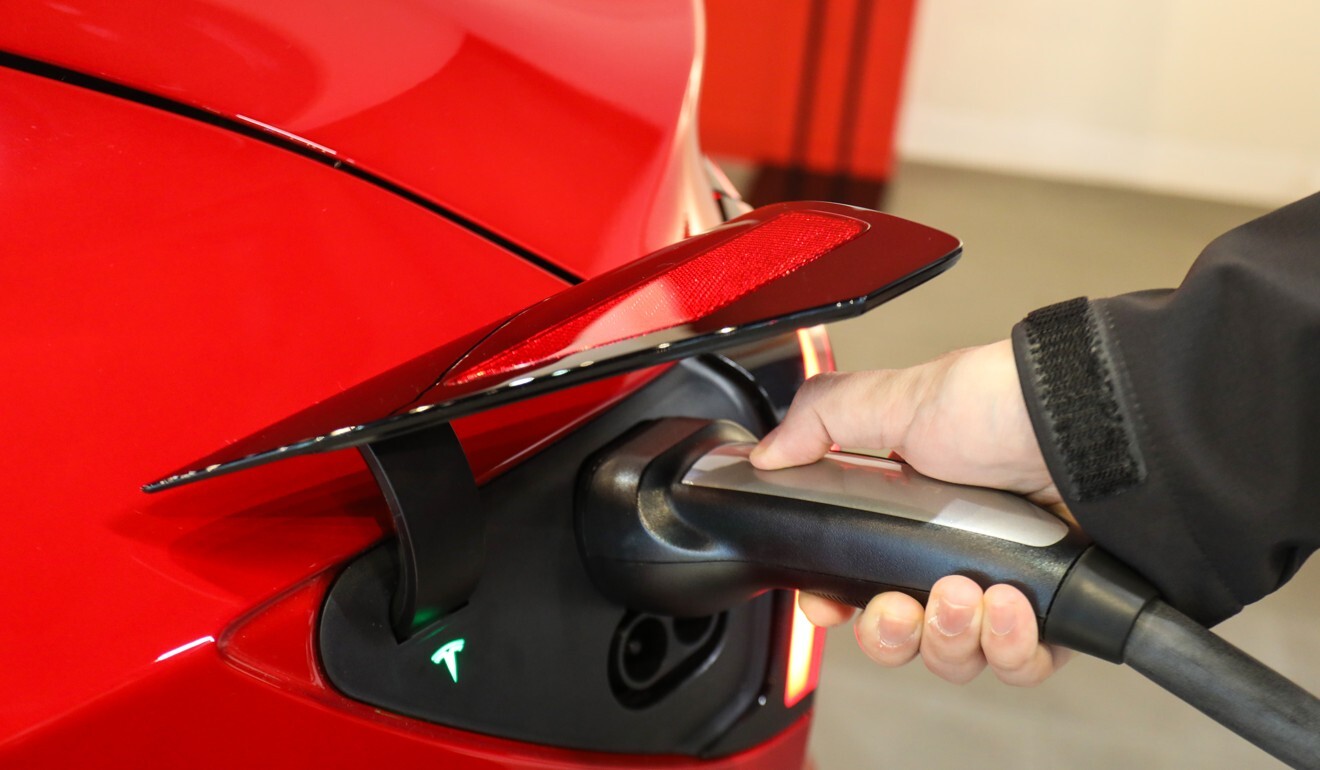
Hong Kong budget: city bets big on electric vehicles and green finance, but concern groups say more needed to hit 2050 carbon neutrality goal
- Finance Secretary Paul Chan on Wednesday revealed that a road map to ending use of fossil fuel-powered cars is set to be released next month
- But local green groups fear follow-up will be in short supply, and note real issue is how the city generates its electricity to begin with

Hong Kong’s new budget will have a greener focus, with authorities set to phase out the purchase of fossil fuel-powered private cars by 2035, placing an increased emphasis on green finance and upgrading facilities at the city’s country parks.
But local green groups said the budget missed the mark when it came to funding for renewable energy that would help Hong Kong transition to a sustainable, low-carbon economy, raising questions over whether the city would be able to hit its stated goal of carbon neutrality by 2050.
In his budget address on Wednesday, Financial Secretary Paul Chan Mo-po highlighted the city’s efforts to replace existing fossil fuel-powered cars with those that run on electricity and said the Environment Bureau was expected to unveil a road map for making that a reality by next month.

“The key measures include ceasing the new registration of fuel-propelled PCs [personal cars] in 2035 or earlier, expanding the EV [electric vehicle] charging network and promoting its marketisation, training of EV technical and maintenance practitioners, and formulating a Producer Responsibility Scheme for retired EV batteries,” he said.
The transport sector contributes up to 20 per cent of the city’s carbon emissions, and the city’s environmental authorities have long sought to boost the uptake of electric vehicles among both private car owners and public transport.
In the past decade, the number of electric vehicles in Hong Kong has grown from just 184 to over 18,500. In 2019, the city announced a scheme to subsidise the installation of electric vehicle parking spaces at private housing estates, and applications for more than 50,000 such spaces have been received, Chan said.
We’re worried the government will release the road map without taking proper action. We have already made the pledge to be carbon neutral, so what we need is top down policies
Subsidies to help switch the city’s ferries and minibuses to electric power are also being put in place.
However, the city’s green groups said they hoped the government would move to phase out fossil fuel-powered vehicles by an even earlier date.
“The road map to popularise electric vehicles is very important to achieving carbon neutrality and reducing … air pollution,” said Jeffrey Hung Oi-shing, chief executive of environmental NGO Friends of the Earth (HK).
“But we’re worried the government will release the road map without taking proper [follow-up] action. We have already made the pledge to be carbon neutral, so what we need is top down policies,” he added, referring to a goal laid out in city leader Carrie Lam Yuet-ngor’s November policy address.
Hung pointed out that many other countries and cities globally had set earlier goals, such as Norway, which aims to ban the sale of fossil fuel cars by 2025, and the United Kingdom, which recently moved its target from 2040 to 2030.

“An earlier date for phasing out new registrations would also give people a deadline and lower incentives to purchase another fossil fuel vehicle,” said Ray Yeung Yat-fai, campaign and communications manager for The Green Earth.
A government source said the date could be moved forward if it was feasible.
Yeung also pointed out if Hong Kong did not switch to renewable energy to generate the electricity used to charge vehicles, their use would not contribute enough to lowering carbon emissions. For now, most of the city’s power is generated using a combination of natural gas and coal, which still emit greenhouse gases.
Both Yeung and Hung agreed the city needed to invest more in developing a renewable energy grid, saying the city had the potential for building offshore wind farms, or imitating Singapore’s strategy of importing solar energy from Australia.

“Despite wearing a green tie and choosing a green colour for this year’s budget, the financial secretary missed an opportunity to show how the government can transition Hong Kong into a low-carbon, sustainable economy,” Hung said.
One policy move greeted with enthusiasm was the decision to double the amount of money the government can borrow in order to issue another HK$175.5 billion worth of so-called green bonds. Hong Kong successfully offered a second batch of government green bonds totalling US$2.5 billion last month.
“Green bonds are globally acknowledged as an effective tool to help with funding projects that could help with the mitigation of climate change,” Hung said. But he noted Hong Kong still lagged in its green finance policies, and urged the government to both invest in training talent in the sector and set clear guidelines for what can be considered “green”.
He also urged the government to place more of its assets, such as funds invested by the Hong Kong Monetary Authority or Hospital Authority, in green finance.

Meanwhile, with more Hongkongers exploring the city’s country parks amid the coronavirus pandemic, the government has pledged HK$500 million to 20 projects that would upgrade facilities at select country parks, including the building of treetop walks and “glamping” sites.
Although the source did not specify the number of country parks to be included in the new plan, they said the selection criteria would likely include the geographic location, number of visitors, and feedback about the public’s wishes.
The Green Earth’s Yeung said the criteria for site selection should also take into account the carrying capacity of each location, to ensure an influx of visitors would not overload the area and risk destroying the natural environment.
While he welcomed an investment in “hardware” upgrades, Yeung said “software” such as education and promotion efforts also needed to be stepped up as the number of nature buffs increased.
“We need to strike a balance between the two and come up with a holistic package, rather than just taking a purely developmental mindset,” he said.